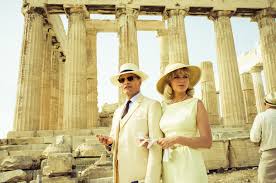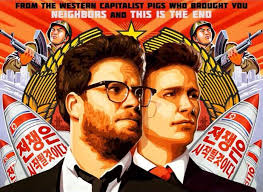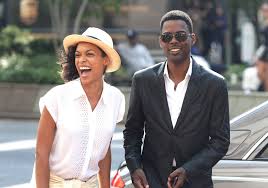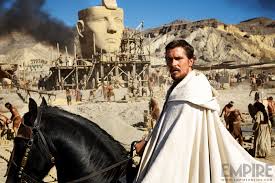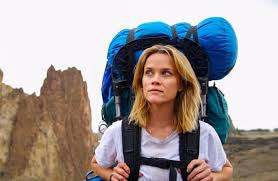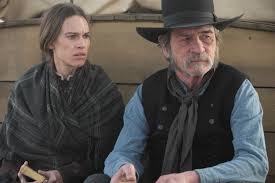I have neglected my blog.
This has been the busiest semester I can recall – teaching four classes (including a Lifelong Learning course) and enjoying them all despite it being twice my usual teaching load, chairing the United Way Campaign for Wake Forest University, serving as a Faculty Fellow in an undergraduate residence hall, revising a book manuscript, starting a new film…and other assorted things…you get the idea…I have not had time for many important things.
But, I’ve missed the blog and don’t intend to overextend myself again to the degree that it means falling behind with updating you about what I’m watching.
Look for a television catch-up to come, but today I’ll write brief comments on most of the movies I’ve seen but not shared in this space.
Before I Go To Sleep – the best thing I can say about this film is that I saw it on Halloween! Nicole Kidman and Colin Firth (cast against type) are fun to watch, but there’s not a great deal to recommend the film otherwise.
Birdman – did not quite live up to the hype for me. I love the concept and the performances, but the ending is not satisfactory for me. My friend Chad saw the film at the same time I did but in different cities, and he has a better take on the ending of the movie that I did at the time (quoted with permission from a text): “My reaction is that they are both mentally ill and share that connection and understand each other more than anyone else understands them. And they both want desperately to escape their lives.” I admire the film but am not moved by it.
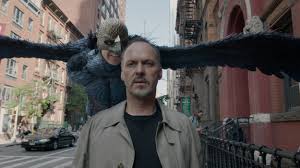
Dear White People – is an important film for me. I saw it twice, in fact, once alone and a second time with students. If you accept that some characters are “types” representing “ideas” (especially administrators), then some concerns I’ve heard expressed about the film are allayed. It’s clear that we have a race problem in America and that most whites have a different perspective on a variety of topical issues than most people of color – even when it comes to lived experiences as direct evidence. This film can be a useful catalyst for conversation, and as we know from recent events at campuses near and far, the situations and events in the movie that cause student unrest are not unrealistic.
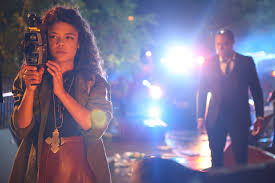
Dial M for Murder – one of my Wake Forest seminars this semester is Gender and Hitchcock, and it was a delight to take some students to see the film projected in 3D on the big screen at a local cinema. Not one of my Hitchcock favs for assorted reasons, it was nonetheless a fun evening.
Interstellar – is filled with ideas that interest me, but the film itself is only partially successful in engaging my head and my heart. Honestly, I liked it more than I expected because I often find Christopher Nolan’s work too gimmicky, but sections still felt too long, and I was more interested in the daughter’s story than the father’s narrative, which left me feeling shortchanged.
Last Days in Vietnam – pacing is a problem. The archival materials are captivating, but the storytelling is uneven. The first half hour or so of the film should have been compressed into a very short exposition to give the several compelling stories that follow greater impact.
Rosewater – would have been a terrific play. I’m sympathetic to the story, but the single perspective of the narrative limits dramatic opportunities that would have made it a much stronger film.
St. Vincent – surprisingly good because Bill Murray is such a convincing grouch, Naomi Watts can play anything, Jaeden Lieberher is believable, and Melissa McCarthy can handle a straight role. The lack of sentimentality and performances make this film more than the sum of its parts.
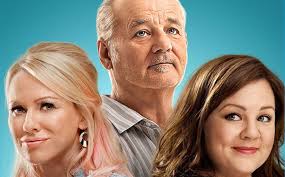
The Judge – a family drama in the classic style is, like St. Vincent, good, old-fashioned storytelling. I’d watch Robert Duvall in anything, and Robert Downey, Jr. is accomplished, too. While not indelible and remarkable, it is a solid picture.
The Theory of Everything – ah, now this one I love. Maybe I’ll see it again. Maybe I’ll write more about it later. Maybe it will be on my annual Top Ten List. This story about Jane and Stephen Hawking’s courtship and marriage is wonderful and unexpected in its emotional truth. Felicity Jones and Eddie Redmayne are perfect – and I am nearly convinced he can play anything, too. Maybe he should team up with Naomi Watts in something totally unexpected and dazzle us. SEE THIS FILM!
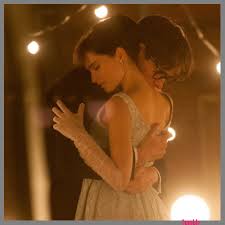
This is Where I Leave You – utterly forgettable. I’ve already forgotten it and can’t think of anything to say!
Two Faces of January – students in my Gender and Hitchcock class and I went to see this one afternoon because someone in class reported that it had been described has “Hitchcockian.” We decided collectively that while story elements are similar in some ways to those commonly found in Alfred Hitchcock’s work that the more realistic aesthetic disqualifies it from serious comparison because, as we know, Hitchcock is not only the “master of suspense” but also a master of formalism.
